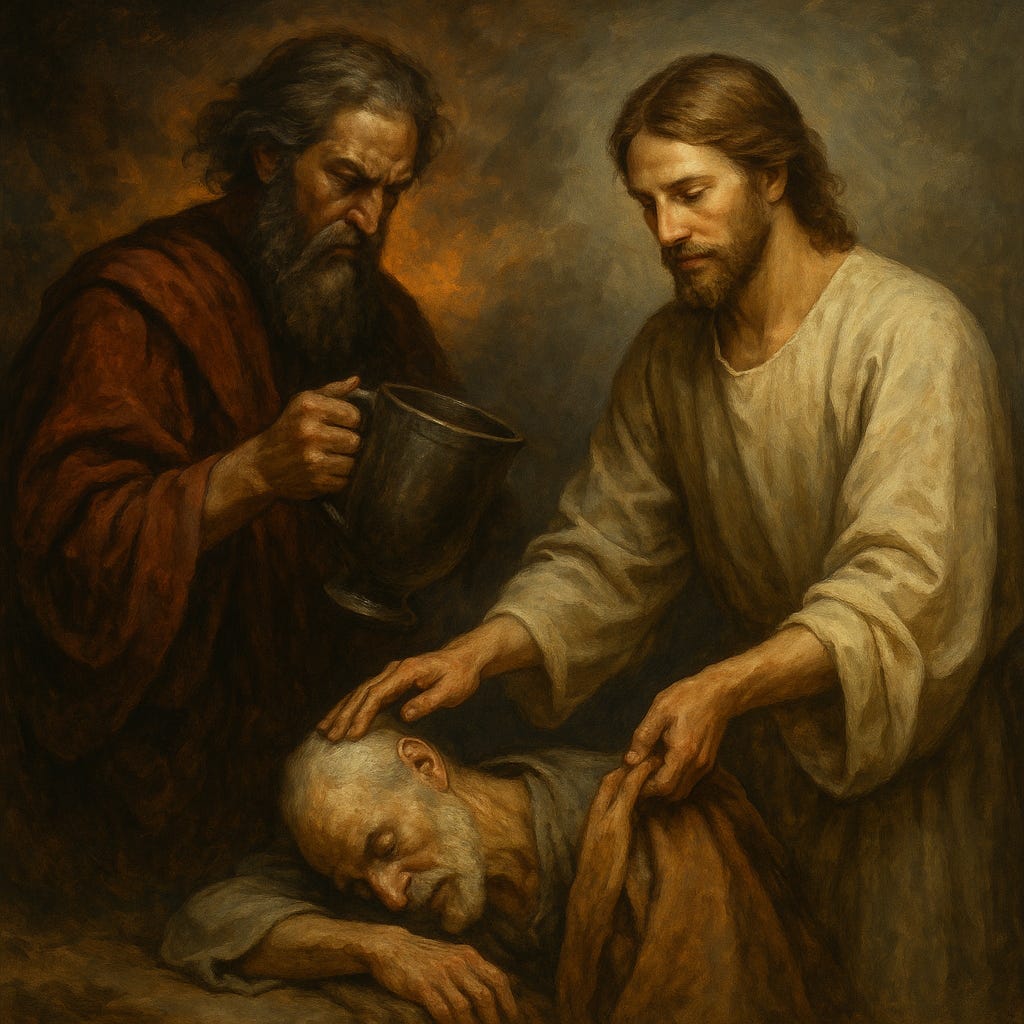The Cup and the Call: Turning Judgment into Compassion
Wednesday, October 15, 2025 | Jeremiah 25:15-32 & Matthew 10:5-15
Even in pronouncements of divine judgment, the consistent call to embody the very character of the Kingdom – healing, compassion, and a radical trust in God’s provision – offers a timeless path for our own faithful living.
Jeremiah’s words in chapter 25 are weighty, filled with the stark imagery of God’s anger poured out upon nations. The exegesis reveals a profound theological truth: God’s judgment is not simply an act of retribution, but a consequence of broken covenant and a demonstration of His sovereign authority over all the earth. The “cup of His anger” is not a capricious outpouring, but a deliberate act of justice, a stark reminder of the consequences of rejecting His ways. This is underscored by the repeated emphasis on the nations drinking and being brought low, a consequence of their own choices and rebellion. The passage isn’t solely about condemnation, however; it’s rooted in God’s unwavering faithfulness to His people and His commitment to establishing His righteous order globally.
The semiotic analysis offers a compelling lens through which to understand this ancient text. The repeated imagery of the “cup” resonates powerfully today as a metaphor for the burdens we carry, things like anxieties, resentments, and the weight of the world. The act of “making all the nations drink” can be powerfully linked to the current cultural obsession with global power dynamics and the often-destructive pursuit of dominance. We see this echoed in the pervasive narratives of economic competition, geopolitical tension, and the relentless striving for influence. But just as Jeremiah’s prophecy doesn’t end with the cup being poured out, the Gospel reading in Matthew 10 offers a contrasting, yet complementary perspective. Jesus sends out his disciples not to conquer or dominate, but to serve as “God’s lost sheep,” bearing healing and hope. The stark contrast highlights a crucial tension: the tempting allure of worldly power versus the radical humility and compassionate action demanded by the Kingdom of God. Does our pursuit of influence often mask a deeper yearning for something more authentic and enduring?
The integration of these insights reveals a profound call to re-evaluate our own relationship with power and judgment. Jeremiah’s prophecy reminds us that God is not indifferent to injustice, and that consequences will inevitably follow. However, Matthew 10 challenges us to embody a different kind of power. We are called to embody the power of service, of healing, of extending grace. The ancient pronouncements of judgment aren’t meant to paralyze us with fear, but to awaken us to the urgency of living a life marked by compassion and intentionality. In a world saturated with narratives of competition and control, Jeremiah’s stark imagery hints at something deeper: true strength lies not in dominating others, but in bearing their burdens and offering healing. We are called to be agents of restoration, not instruments of retribution. This is not a passive acceptance of fate, but an active participation in God’s work of redemption, mirroring the very character of the Kingdom He is establishing.
Today’s Practice
Take a moment to acknowledge a burden you are currently carrying – an anxiety, a resentment, or a feeling of being overwhelmed.
Consider how you might offer a small act of service or kindness to someone today, mirroring the disciples’ mission.
As you move through your day, consciously choose to respond to conflict with compassion rather than judgment.
Reflect on a place where you might be seeking to exert control; consider surrendering a little and trusting in God’s larger plan.
Closing Prayer
May we be ever mindful of the delicate balance between acknowledging injustice and embodying the compassionate heart of the Kingdom, trusting in Your sovereign grace and unwavering love for all.


